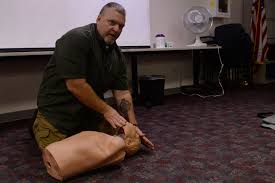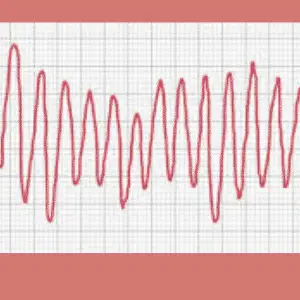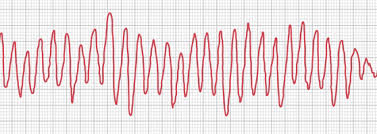Sudden Cardiac Arrest and Magnesium

Sudden cardiac arrest is a condition in which the heart suddenly stops beating. When this happens, blood immediately stops going to the brain and other organs.
If a sudden cardiac arrest is not treated within minutes the person will die. There is an electrical system that controls the rate and rhythm of the heart.
Usually, the person does have a pre-existing heart condition, however, sometimes the person may not be aware of it
Approximately 400,000 people have an out of the hospital cardiac arrest in America. Approximately 230,000 people are treated in the hospital for sudden cardiac arrest.
The mortality is very high. It is estimated that there is a mortality rate of 75 to 90 percent. For the people who do survive, they have a high chance of suffering an injury to the brain and nervous system. An implantable defibrillator and medication therapies can help prevent cardiac arrest.
In this article, we will discuss the relationship between sudden cardiac arrest and low magnesium.
People at Risk for Sudden Cardiac Arrest
There are some people with pre-existing conditions and lifestyles that predispose them to sudden cardiac arrest. These include:
- People with heart failure and an ejection fraction of less than 35 percent
- People who use illicit drugs especially cocaine and opiates
- People with congenital heart disease
- People with a history of arrhythmias
- People with a strong family history of sudden cardiac arrest
- People with a history of a previous heart attack
What is Magnesium?
Magnesium is the second most abundant electrolyte in the body. It is an essential transmembrane and intracellular modulator of cellular electrical activity.
Magnesium Use in A Cardiac Arrest
Often times while working in the emergency department, I have taken care of many people in full arrest. The paramedics will have already started CPR and once they get to the emergency department, we take over.
The likelihood of having a successful outcome is directly related to how long the person has been asystole or without a pulse. If the arrest was witnessed, the person’s chances of surviving are greater because we know that defibrillation and CPR do work in many cases.
For people who are at greater risk for cardiac arrest, cardiologist suggests getting an implantable defibrillator. They also put on several different classes of drugs like beta-blockers and antiarrhythmic drugs.
Natural Treatment for the Prevention of Sudden Cardiac Arrest: Magnesium
By far magnesium is the single most important mineral for the heart. There had been a plethora of evidence that people who have sudden cardiac arrest have low levels of magnesium.
Magnesium is a mineral and common cation in the human body, a natural calcium antagonist and modulates vasomotor tone, blood pressure, and peripheral blood flow.
Studies have proven that low magnesium levels are associated with high blood pressure, metabolic syndrome, and diabetes. These are all risk factors for sudden cardiac arrest.
Magnesium deficiency will also cause fatal arrhythmias such as torsades, ventricular tachycardia, and ventricular defibrillation. The majority of sudden cardiac arrest comes from arrhythmias.
It is hard to get magnesium from food sources because of the way the food is harvested, and the preservatives that are in the food. Magnesium Taurate is considered the “heart” magnesium. However, there are many forms of magnesium, and each person is an individual who has different tolerances.
Magnesium in the Emergency Room
In the emergency room, magnesium is a staple medication. It is used in several different life-threatening situations such as severe asthma, pregnant women with eclampsia ventricular tachycardia, and other life-threatening arrhythmias.
There have been many studies done to assess if magnesium limits heart muscle damage during a heart attack. Magnesium is thought to stop calcium from decreasing the tone of the coronary arteries and heart muscle.
What is Torsades?
Torsades is a type of ventricular tachycardia that occurs in the setting of a prolonged QT interval. Torsades is a serious condition and can be life-threatening.
Torsades is characterized by rapid, irregular QRS complexes that appear to be twisting around the ECG baseline.
Sometimes Torsades can resolve spontaneously. Sometimes Torsades can lead to ventricular fibrillation and death.
Torsades can be congenital or drug-induced. There are many drugs that can cause Torsades.
Torsades de pointes Treatment
The treatment for Tosades is IV magnesium, measures to shorten the QT interval, and equipment on hand if the person goes into ventricular fibrillation.
Magnesium Sulfate is given 2 gram IV over 1 to 2 minutes. If this treatment is not successful, then another Magnesium Sulfate IV is given over 5 to 10 minutes.
Then a Magnesium Sulfate infusion of 3 to 20mg/minute is given. Lidocaine will shorten the QT interval.
Magnesium Sulfate in the Hospital
When patients come into the hospital in full-blown cardiac arrest, we start the ACLS protocol. In addition to the standard resuscitation medication, we do use magnesium in some cases.
Also, when a patient comes into the emergency department with an irregular heartbeat, we obtain labs and most likely the person is low in electrolytes especially potassium and magnesium. We give magnesium sulfate in the hospital setting.
Causes of Low Magnesium
There are many different causes of low magnesium. One of the main reasons is that the person does not get enough of the mineral. In today’s times, it is challenging to get enough magnesium in the foods because of the way the foods are farmed and harvested. Click here for a list of high magnesium foods.
The irony is many people with cardiac disease take lasix. Lasix depletes many vitamins and minerals out of your body including potassium, magnesium, B vitamins, and other minerals.
It is imperative that people who take lasix get their daily intake of vitamins and minerals. They may have to take supplements and that is alright.
The FDA had a black box label on proton pump inhibitors known as PPI. There are hundreds of millions of people taking some form of PPI around the world. The black box warning is because PPI depletes magnesium out of your body and can cause heart problems.
Conclusion
Magnesium is gold to the heart. The heart cannot properly beat and function without it. It is so easy to get your magnesium in taking supplements. Sudden cardiac arrest has been associated with low magnesium.
[su_button target=”blank” style=”flat” size=”5″ title=”https://amzn.to/2KH7GFS”]Buy Your Magnesium Today and Protect Your Heart![/su_button]
Get Your Magnesium Today
.



Very informative. Thanks so much for the post.
Thank you for this valuable post Phyllis.